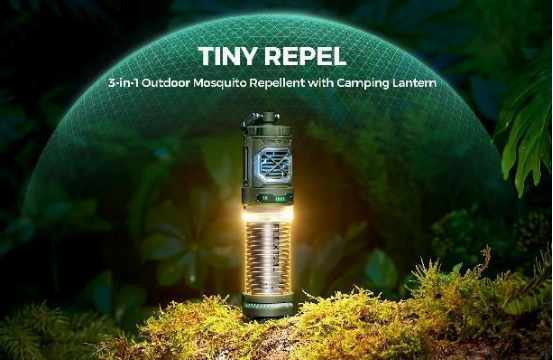Mosquito control is crucial not only for comfort but also for health, as mosquitoes are vectors for diseases like malaria and Zika virus. Today's market offers a diverse array of mosquito repellers, ranging from chemical solutions like DEET to natural options such as citronella and high-tech devices like ultrasonic repellents and mosquito repellent lights. Understanding the different types available helps individuals choose the most effective solution for their environment and needs, ensuring outdoor activities can be enjoyed free from the annoyance and danger of mosquitoes.
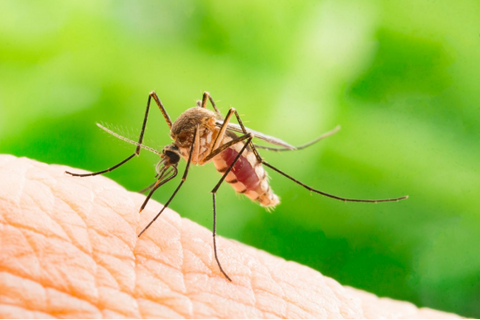
What Is a Mosquito Repeller?
Mosquito repellers are tools and substances designed to keep mosquitoes at bay, preventing them from biting humans and enhancing comfort and safety in outdoor environments. They play a crucial role in reducing the discomfort associated with mosquito bites and in lowering the risk of spreading diseases like Zika, West Nile virus, and malaria.
Types of Mosquito Repellers
- Chemical-based repellents: Chemical-based repellents like DEET and Picaridin are applied directly to the skin or clothing and provide effective, long-lasting defense against mosquitoes. DEET is highly regarded for its effectiveness, whereas Picaridin serves as a gentler alternative that still maintains a comparable level of protection.
- Natural repellents (Citronella, Oil of Lemon Eucalyptus): These are derived from plants and offer a more environmentally friendly option. Citronella is commonly used in candles and oils, and oil of lemon eucalyptus is praised for its efficacy comparable to lower concentrations of DEET.
- Physical barriers (Mosquito nets): Nets provide a physical shield against mosquitoes, making them essential for protecting sleeping areas or static outdoor setups, especially in heavily infested regions.
- Electronic repellers (Ultrasonic devices, CO2 traps): Ultrasonic devices emit frequencies thought to repel mosquitoes, whereas CO2 traps attract and capture mosquitoes by mimicking human breath, effectively reducing their populations in an area.
1. Chemical Mosquito Repeller
Chemical repellents stand out as some of the most effective tools for controlling mosquitoes, offering robust protection against bites and the diseases these insects transmit. Let’s delve into some of the most commonly utilized chemical repellents.
DEET
- Advantages: DEEThas a proven track record of effectiveness and can protect for several hours with a single application. It's suitable for both high-intensity mosquito areas and longer periods outdoors.
- Considerations: Although very effective, DEET can be harsh on sensitive skin and may damage plastics and synthetic fabrics. It is advisable to use it carefully, applying it to clothing where possible and avoiding over-application.
Picaridin
- Benefits: Picaridinis less irritating to the skin than DEET and has no odor, which makes it a preferable choice for those sensitive to smells. It does not damage clothing or gear.
- Usage Tips: Apply Picaridin directly to exposed skin and clothing for optimal protection. It's available in various forms such as sprays, lotions, and wipes, making it versatile for different needs.
Permethrin-treated Clothing
- How it Works: Permethrinis a synthetic chemical that acts as both a repellent and an insecticide. When applied to clothing, it repels and kills mosquitoes on contact.
- Best Use Cases: Ideal for campers, hikers, and outdoor workers, permethrin-treated clothing is especially useful in areas with high mosquito populations. It is long-lasting, typically effective through multiple washes, and offers a no-fuss approach to mosquito protection.
These chemical-based solutions provide robust defense against mosquitoes, each offering unique benefits tailored to different outdoor activities and personal preferences.
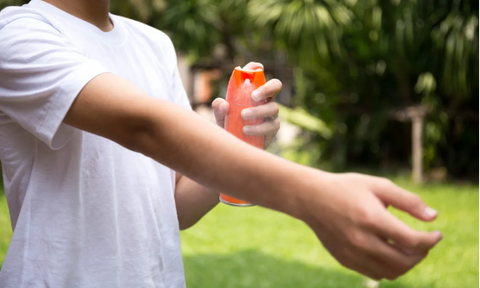
2. Natural Mosquito Repeller
Natural mosquito repellents present an environmentally friendly and potentially safer alternative for people sensitive to chemical-based products. Below is how some of the most popular natural repellents function.
Essential Oils and Plants
- Citronella: The oil from citronella grass is commonly used in mosquito repellents. Its strong scent masks other attractants to mosquitoes, effectively keeping them away.
- Peppermint: Peppermint oil contains menthol, which is disliked by mosquitoes. It not only repels them but can also soothe mosquito bites.
- Lemon Eucalyptus: Lemon Eucalyptus oil is noted for its effectiveness against mosquitoes, primarily due to a compound called PMD. It offers protection comparable to lower concentrations of DEET and can provide lasting defense against bites.
DIY Natural Repellent Recipes
- Citronella Oil Spray
- Mix 30 drops of citronella essential oil with 1 cup of water and a teaspoon of lemon eucalyptus oil.
- Pour into a spray bottle and shake well.
- Spray on exposed skin and around your sitting area.
- Peppermint Body Rub
- Combine 15 drops of peppermint essential oil with ¼ cup of coconut oil.
- Store in a jar and apply to exposed areas of the body when outdoors.
- Lavender and Eucalyptus Spray
- Mix 20 drops of lavender oil and 10 drops of lemon eucalyptus oil with ½ cup of witch hazel.
- Add to a spray bottle, top up with water, shake well.
- Use as a natural spray repellent.
These natural solutions can be effective in repelling mosquitoes, especially in less infested areas or for short periods outdoors. They also double as pleasant scents for personal care, enhancing outdoor enjoyment without the use of harsh chemicals.
3. Technological Innovations in Mosquito Repellency
Many products in the market today reflect significant technological advancements, providing new and effective solutions to help us repell mosquitoes.
Mosquito Repellent Lights
- Mosquito Repellent Lightsemit specific wavelengths or utilize heat to vaporize mosquito-repellent chemicals, creating a protective barrier against mosquitoes.
- Ideal for both home gardens and outdoor activities like camping. They can be placed around campsites, patios, or any outdoor areas where lighting and mosquito protection are needed.
- These lights provide dual benefits by illuminating the area and repelling mosquitoes. This makes them perfect for evening activities outdoors, ensuring areas are mosquito-free and well-lit.
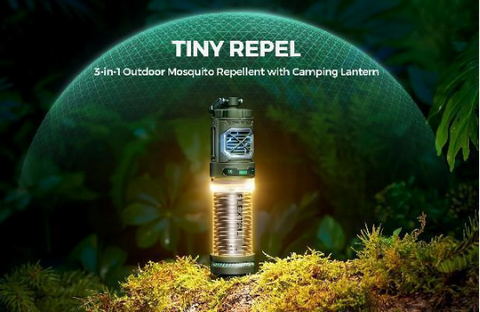
Ultrasonic Repellers
- Ultrasonic repellers use high-frequency sounds designed to create an inhospitable environment for mosquitoes. The effectiveness of these devices often depends on the sound frequency and the particular mosquito species targeted. They work best in enclosed or semi-enclosed spaces, such as tents, small backyards, or decks, where the sound waves are more concentrated.
- As a non-invasive and chemical-free option, ultrasonic repellers are especially suitable for families with children and pets. These devices represent a contemporary approach to mosquito control, leveraging cutting-edge research and development to maintain mosquito-free zones in a user-friendly and environmentally considerate way.
4. Physical and Environmental Controls
Physical and environmental controls are essential for managing mosquito populations effectively. These methods rely on natural and physical barriers instead of chemicals or electronic devices. Here’s a look at some of the most effective strategies.
Mosquito Nets
- Mosquito nets provide a physical barrier that prevents mosquitoes from accessing an area. When properly installed and used, they are extremely effective at protecting individuals from mosquito bites, especially during sleep.
- Ensure the netting has no holes and is tucked under mattresses or secured to the ground to prevent mosquitoes from entering. For outdoor use, suspend the net over your activity or sleeping area, making sure it drapes all the way around without gaps.
Fans and Air Movement
- Mosquitoes are weak fliers, and the airflow created by fans can effectively disrupt their flying patterns. Fans also help disperse the carbon dioxide and body scents that attract mosquitoes, making it harder for them to locate targets.
- Place fans at ground level where mosquitoes tend to fly. For outdoor seating areas, positioning a fan nearby can significantly reduce the number of mosquitoes that can land on individuals.
Landscape Tips
- Mosquitoes breed in standing water, so eliminating sources such as buckets, birdbaths, and clogged gutters can dramatically reduce their population.
- Keep grass cut short and shrubbery well-trimmed to reduce the areas where mosquitoes rest. Dense vegetation provides moisture and shade for mosquitoes during hot parts of the day.
These methods are crucial for comprehensive mosquito management, integrating physical barriers and environmental modifications to make spaces less attractive to mosquitoes. Adopting these strategies can help you enjoy outdoor areas with significantly fewer mosquito disturbances.
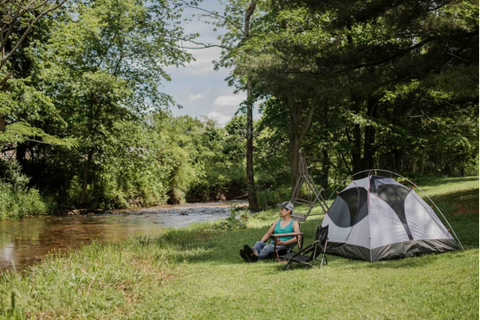
Choosing the Right Mosquito Repeller
Selecting the most effective mosquito repeller involves evaluating a range of factors that directly impact its performance. Here are the essential considerations you should take into account to ensure you make a well-informed choice tailored to your specific needs.
Factors to Consider
- Environment: The type of environment where you will be using the mosquito repeller greatly influences your choice. For instance, heavily wooded areas might require stronger chemical repellents, while a backyard might benefit from physical barriers or natural solutions.
- Mosquito Species: Different species of mosquitoes may respond differently to various repellents. Knowing the prevalent species in your area can guide you to choose the most effective repellent.
- Duration of Protection: Consider how long you need protection. For short periods, natural repellents might suffice, but for longer durations or more intense mosquito activity, stronger chemical repellents or technology-based solutions may be necessary.
Safety Considerations
- Chemical and Electronic Repellers: When using chemical repellents, it's crucial to follow the instructions carefully to avoid skin irritation or other adverse effects. For electronic repellers, ensure they are safe for use around children and pets, avoiding any that might pose risks.
- Children and Pets: Products used around children and pets should be chosen with extra care. Opt for non-toxic, natural options when possible, and ensure electronic devices are placed where they cannot be tampered with by curious hands or paws.
Choosing the right mosquito repeller is a balance between effectiveness, safety, and suitability for your specific situation. Assessing these factors thoroughly will help you make a choice that keeps you and your loved ones safe and comfortable in any outdoor setting.
Summing Up
In conclusion, selecting the right mosquito repeller is crucial for ensuring effective protection against mosquitoes, enhancing your comfort, and safeguarding your health during outdoor activities. It's important to consider the specific environmental conditions, prevalent mosquito species, and the duration of protection needed when choosing a repeller. Assess your personal needs carefully and choose a mosquito repeller that not only offers effective protection but also aligns with safety considerations for you, your family, and pets. Make your outdoor experiences enjoyable and worry-free.
 EN
EN JA
JA